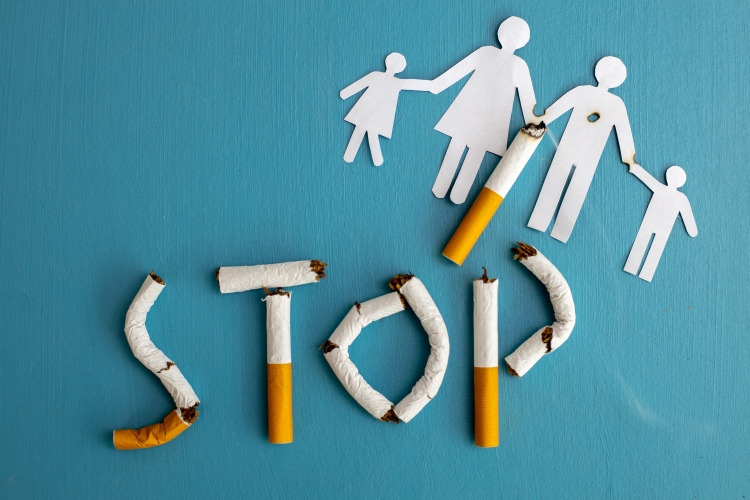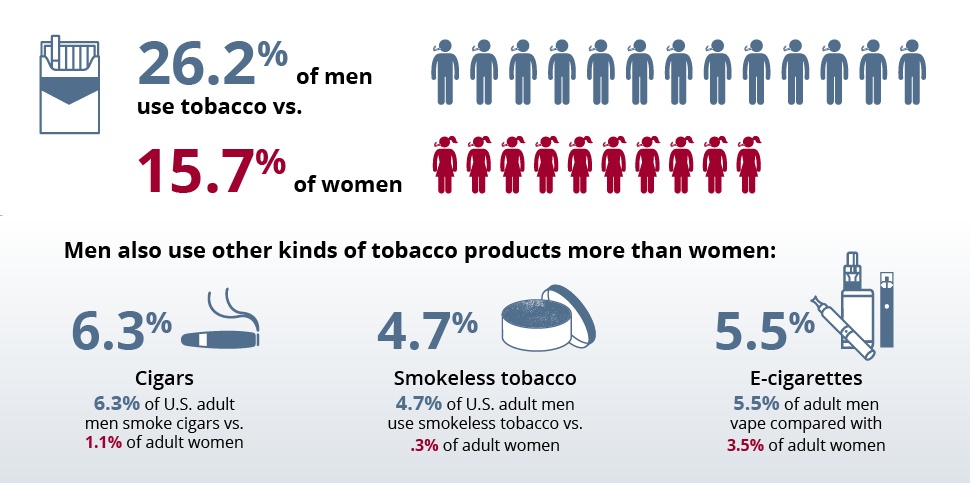As we continue to face unknowns with the pandemic, the focus of National Men’s Health Awareness Month this June includes steps men can take to reduce their risk with coronavirus. And one of these steps is to quit tobacco.
Because COVID-19 attacks the lungs, it could be an especially serious threat to those who smoke or vape. Plus, we know tobacco use weakens the immune system and can make smokers more susceptible to infectious diseases.
As tobacco users navigate this stressful time, one of the most important benefits HR leaders can offer is help quitting tobacco with effective support that can be accessed anywhere, anytime.
Here’s what you need to know about tobacco use among men, and why now, more than ever, they need your help to stop using tobacco.
What types of tobacco men use most
Almost twice as many men use tobacco than women. Men also use other kinds of tobacco products more than women:
While these numbers indicate men are using tobacco, the numbers show that most want to quit. In 2015, 67% of male smokers expressed interest in quitting and 55% had tried to quit that year, but only 7% were successful.
Without question, stopping tobacco use is hard, but there are things that can help more men quit tobacco for good, including the use of an evidence-based program.
Effects of tobacco use on men’s health
As you consider how to promote men’s health during the month of June, it’s important to be aware of the many ways tobacco use uniquely affects men’s health.
- Lung cancer: Nearly all lung cancer—the number one cancer killer of both men and women—is caused by smoking. Adults who smoke are up to 20 times more likely to develop lung cancer than nonsmokers, and cigarette smoking is linked to between 80% and 90% of lung cancer deaths.
- Throat and mouth cancers: Men who smoke cigars are at risk for cancers of the mouth and throat.
- Infertility and ED: Men who smoke have about double the rate of infertility found in nonsmokers. Smoking damages the DNA in sperm, which can cause problems with fertility. Smoking can also cause erectile dysfunction in men as young as age 20.
Healthy fathers mean healthier families
Good health is important not only for men, but also for their families. During COVID-19, more men found themselves at home. Similarly, due to school closures, their kids were also at home, which meant increased exposure to the health habits of the adults at home.
During this time, fathers and male caregivers who smoke may have more time to expose their children to secondhand smoke. Exposure to smoke increases the risk of children developing asthma and leads to 400 infant deaths every year.
If your quit-tobacco program can help male family members quit, there’s a good chance you’re helping the younger generation, too. When adults in the house quit, they protect kids from secondhand smoke exposure. In addition, research shows that youth are more likely to start smoking if a parent smokes. Quitting can stop that cycle.
Help men quit this Men’s Health Awareness Month
Helping men quit tobacco starts with offering an effective, easy-to-access program that provides information and support personalized to their needs.
Built in collaboration with Mayo Clinic, the EX Program by Truth Initiative includes tailored text messaging, live chat coaching, and support from peers and experts in an online social community. For example, here is a snapshot of our resources specifically for chew tobacco; however, this is the just tip of the iceberg we offer to help men quit tobacco in all its forms.
Are you interested in learning additional tips on how to select a tobacco cessation program that can engage your unique employee population in quitting? Download The Buyer’s Guide for Workplace Smoking Cessation Programs now.





